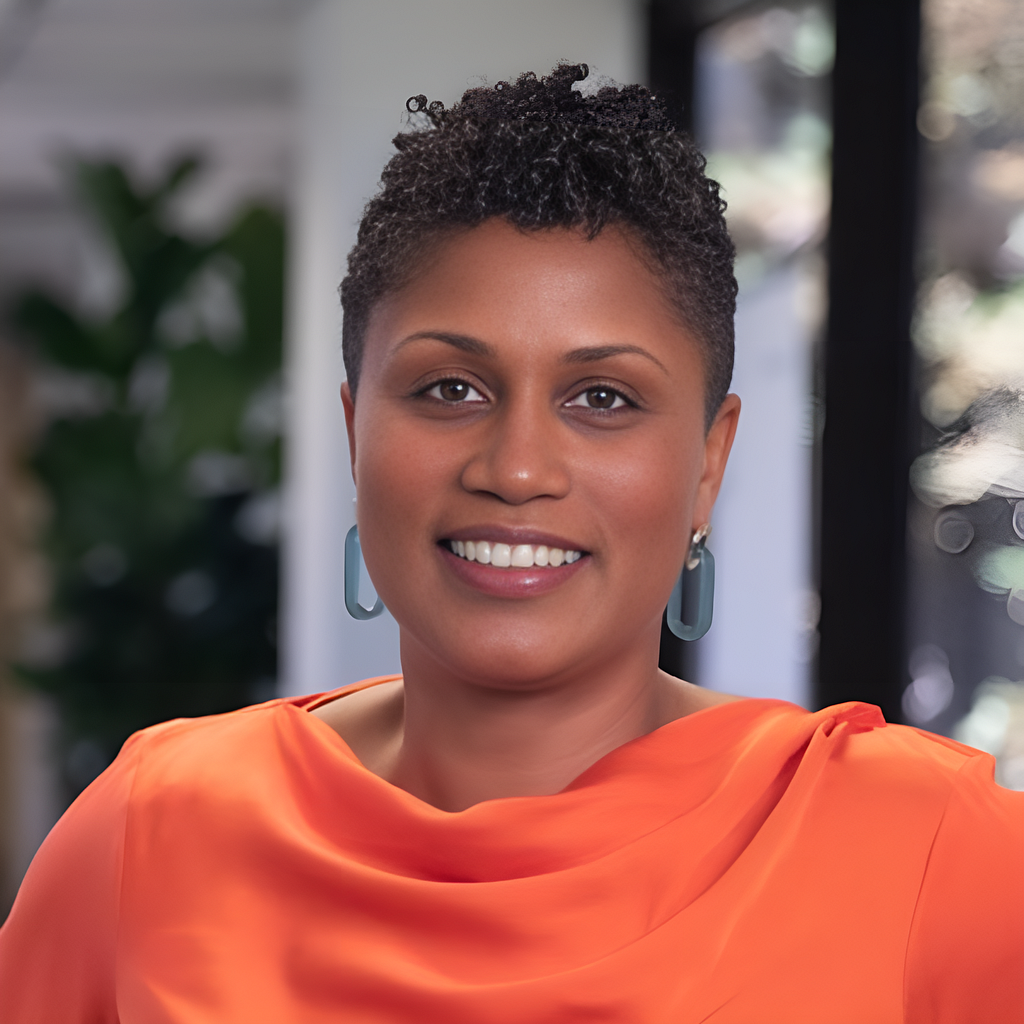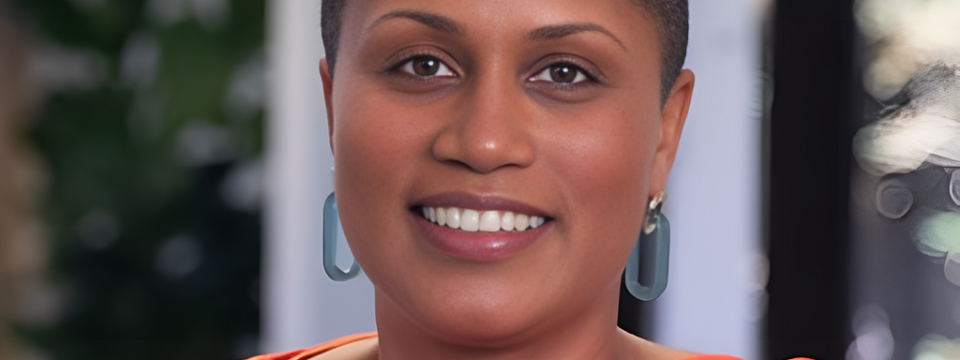
Be a student of the company. This is more than just understanding your specific role; it’s about observing and learning how the company operates, how decisions are made, and how information flows across departments. This knowledge is crucial not only for your professional growth within the company but also for shaping your career. Take the time to learn the company culture, its key players and the company’s process for deliverables. Be patient with this process; it won’t happen overnight but investing the time pays off in the long run.
As part of my series about “individuals and organizations making an important social impact”, I had the pleasure of interviewing Dr. Jennifer Jones-McMeans, divisional vice president of global clinical affairs at Abbott’s vascular business and founding member of the Diversity in Research Office.
As the Divisional Vice President of Global Clinical Affairs in Abbott’s vascular business, Jennifer Jones-McMeans is invested in driving innovation and leveraging technology to bring new medical devices to market globally. Since joining Abbott as a clinical research scientist more than 15 years ago, Jennifer has worked on gaining approval of numerous medical devices in the United States and globally. Jennifer has led many clinical trials, including those for resorbable technologies designed to treat cardiovascular diseases such as peripheral artery disease. In 2021, Jennifer launched a new initiative designed to help create a more inclusive clinical trial ecosystem and clinical research infrastructure and currently co-leads Abbott’s Diversity in Research Office.
Thank you so much for joining us in this interview series! Can you tell us a story about what brought you to this specific career path?
My journey started with a passion for making a positive impact on people’s lives. While pursuing my doctorate at the University of Maryland, I focused on chronic diseases like hypertension. As I was finishing up my degree, I asked myself where I could make the greatest impact and realized it was in academic research setting or working in clinical research with medical devices and pharmaceutical companies. The answer became clear to me that the industry is where I could make the most impact, advancing modern medicine by helping design cutting-edge technologies that would directly impact people’s lives.
It has been said that our mistakes can be our greatest teachers. Can you share a story about the funniest mistake you made when you were first starting? Can you tell us what lesson you learned from that?
When I first started at Abbott, I was young and out of my post-doctoral fellowship. Being new to the corporate environment I was still figuring out corporate dress and style. There was a conference in San Francisco that I was asked to attend. I remember coming appropriately but still casually dressed. I looked around and realized, that I may not have gotten it quite right. People were dressed more formally than I expected. Granted this was more than 17 years ago, but it does make me laugh at my younger self for not having all the insight on how to dress for the occasion. Good learning experience.
Can you describe how you or your organization is making a significant social impact?
While nearly 40% of the U.S. population consists of people of diverse ethnic and cultural backgrounds, due to a long history of mistrust and societal barriers, Hispanics and African Americans are vastly underrepresented in clinical trials representing only 5% of enrollees.
At Abbott, our Diversity in Clinical Trials initiative is designed to create a more inclusive clinical trial ecosystem by focusing on health equity, expanding access and removing barriers to life-saving technology. We’re steadfast in our commitment by establishing a Diversity in Research Medical Advisory Board comprised of external stakeholders and through funding college scholarships for future clinical trial leaders. To support the future leaders of clinical research, Abbott has dedicated $5 million in grants to sponsor more than 300 scholarships at the four Historically Black Colleges and University’s (HBCU) medical schools and the National Black Nurses Association (NBNA) and National Association of Hispanic Nurses (NAHN).
Are there three things the community/society/politicians can do to help you address the root of the problem you are trying to solve?
To bolster diversity in clinical research, there are three things that members of communities and societies can do to address the problem.
- Increase public awareness of the importance of diversity in clinical research. Historically, there has been a lack of diversity in clinical trials, both on the participant and physician sides. We must continue to raise awareness of the need for diverse participants and principal investigators to ensure that the medical devices and therapies of tomorrow support the people most in need. This is a critical part of the healthcare ecosystem and creates equity in healthcare.
- Reduce barriers to healthcare and clinical trials. The entire healthcare ecosystem has to work together to reduce barriers and increase access to care. Groups are also actively working to reduce barriers to clinical trial enrollment. At Abbott, we’ve identified four key barriers — lack of access, trust, understanding and a common language — and are partnering with like-minded organizations to break down barriers and increase participation in clinical trials.
- Increase understanding of chronic diseases. Too often, people don’t know the signs and symptoms of diseases until they worsen and finally seek out care. Early education is key. For example, more than 20 million people in the U.S. are living with Peripheral Artery Disease (PAD), a painful disease caused by blood vessels narrowing which reduces blood flow to the lower limbs. Yet only 10% of those people have been diagnosed. There is an opportunity from the legislative level and the healthcare industry to partner and increase public understanding of chronic diseases like PAD. As a result, more treatment options will be available.
How do you define “Leadership”? Can you explain what you mean or give an example?
Leadership is not dependent on one but dependent on many. It isn’t about having all the answers or taking credit for the team’s success. Leadership means identifying talent, listening to people and collaborating as a team to bring ideas forward and meet goals. The best leaders create an environment where people believe in the mission and have room to learn.
What are your “5 things I wish someone told me when I first started” and why. Please share a story or example for each.
- Be a student of the company. This is more than just understanding your specific role; it’s about observing and learning how the company operates, how decisions are made, and how information flows across departments. This knowledge is crucial not only for your professional growth within the company but also for shaping your career. Take the time to learn the company culture, its key players and the company’s process for deliverables. Be patient with this process; it won’t happen overnight but investing the time pays off in the long run.
- Learn your coworkers’ personalities. Most of your day is spent with colleagues. It’s important to build upon those relationships and have an understanding of not only their working style but also who they are as a person. Relationships are really valuable, so you must invest in them. Just like leaders, no one person can do everything. I recommend learning your coworkers’ personalities and supporting each other to reach goals.
- Do not get caught up in the small noise. Continue to focus on the big picture and what you’re trying to achieve. Listening and participating in rumors or getting caught up in organizational changes can take you off course and away from your end goal. I’ve watched employees get distracted instead of focusing on the job at hand, and it can be destructive. My suggestion is to stay focused and stay goal oriented.
- There is always a solution to the problem in front of you. Although it may not seem that way at the moment, challenges are rarely long-term and with persistence, creativity and innovation, you can find a way through. For example, when Abbott was working to receive the U.S. Food and Drug Administration (FDA) approval for the Esprit™ BTK System, a dissolving stent to treat PAD below the knee, the path was not linear. We began our clinical trial during the pandemic, which presented many obstacles, including recruiting participants, physicians and site investigators. This could have derailed the clinical trial, but instead, we had the opportunity to rethink our approach and adapt the clinical trial design to ensure the technology would best support people with the debilitating disease. It’s about staying resilient, and with the right mindset, you can overcome any challenge.
- Every problem is an opportunity. When faced with adversity, shift your mindset to see it as a chance to learn, grow and innovate. Challenges push us out of our comfort zones and think about situations and solutions differently. Take the example above; during our journey to obtain U.S. FDA approval for the Esprit BTK System, the challenges posed by the pandemic could have been insurmountable. Instead, we refined our approach and now have a device that offers the hope of better outcomes to millions of people with PAD.
You are a person of enormous influence. If you could inspire a movement that would bring the most amount of good to the most amount of people, what would that be?
If I could inspire a movement, it would probably be around mentorship and investment in personal development. Throughout my life, there have been so many people who invested in me and I did not take that for granted. Having credible and skilled individuals who give their time and energy to support you, is a great gift. It provides you with insights that you may not have based on the time in your life and assists in navigating the challenges ahead more seamlessly than if you were doing it alone. For us to thrive as humans we need each other, and mentorship can be a great exercise in human growth from mentee to mentor.
Can you please give us your favorite “Life Lesson Quote”? Can you share how that was relevant to you in your life?
“You are not your thoughts.” People are inherently complex and when faced with challenges and stress, it’s easy to become entangled in our own head. However, it’s essential to move past the noise and focus on being present and fully self-aware. By grounding yourself in the moment you can overcome your thoughts.
How can our readers further follow your work online?
You can follow me on LinkedIn here: https://www.linkedin.com/in/jennifer-jones-mcmeans-ph-d-217a50142/.And follow Abbott’s work online and on LinkedIn: https://www.linkedin.com/company/abbott-/posts.
This was very meaningful, thank you so much. We wish you only continued success in your great work!
Social Impact Heroes: Why & How Abbot’s Dr Jennifer Jones-McMeans Is Helping To Change Our World was originally published in Authority Magazine on Medium, where people are continuing the conversation by highlighting and responding to this story.
